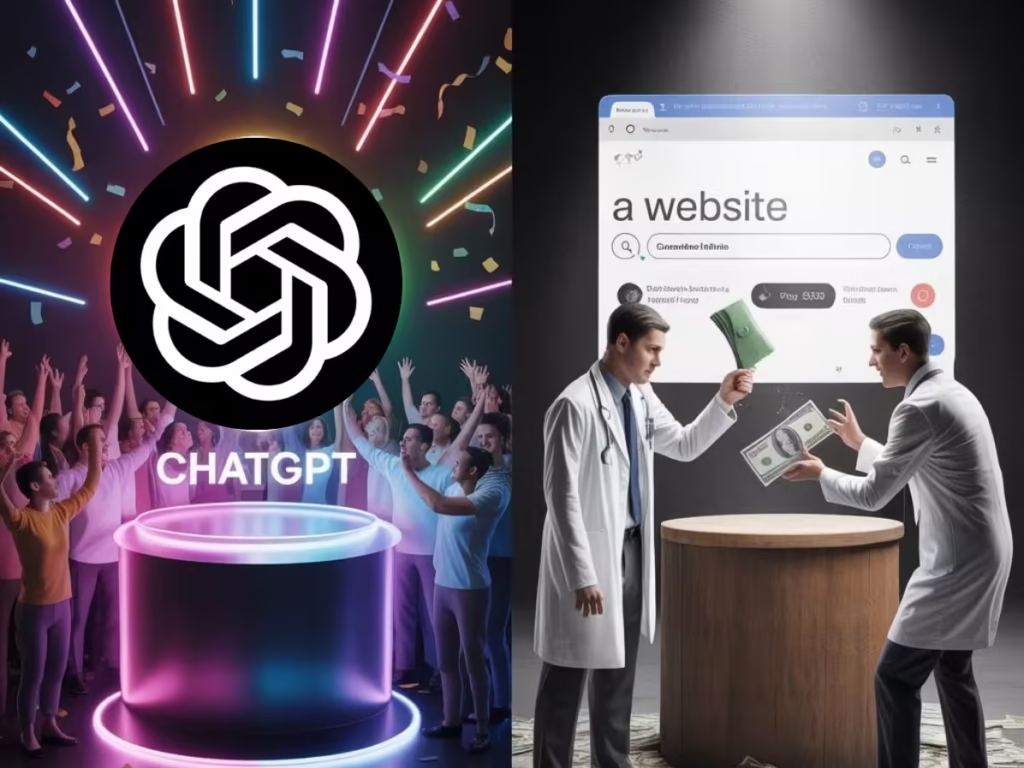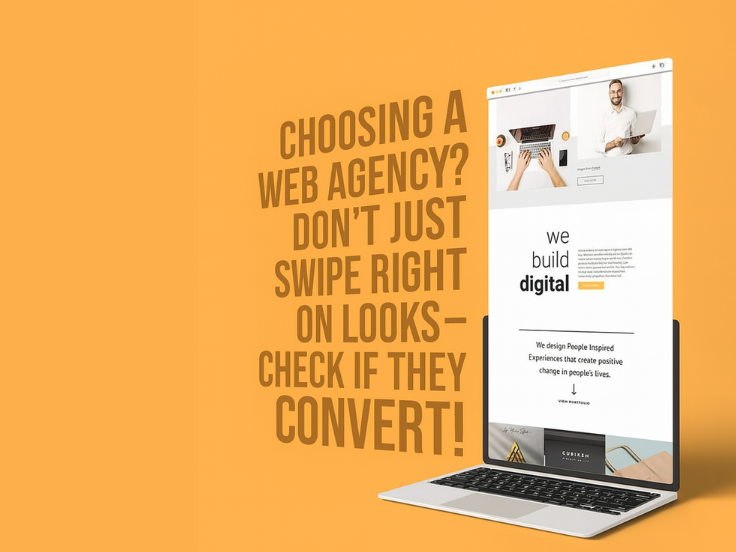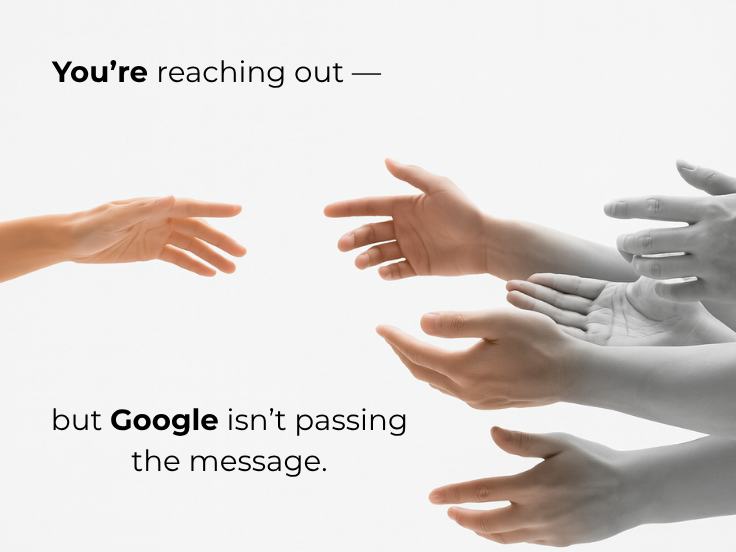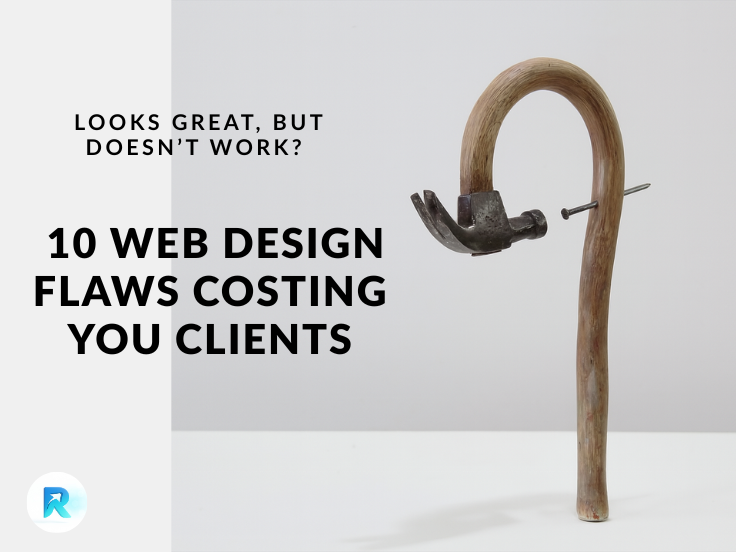“Why should I pay for a website anymore? People don’t click. They just ask ChatGPT, or they see Google’s AI answer right there on top. Nobody visits websites.”
Sounds familiar? It’s a thought many business owners have nowadasys, even if they don’t say it publicly. And to be honest… that fear is logical.
If People Skip Google and Go Straight to AI : Is Your Website a Waste?
Look at what’s happening around us:
- Search traffic is falling fast
- In March 2025, 27.2% of U.S. Google searches ended with zero clicks, which means no one clicked to an external website. That’s up from 24.4% in March 2024.
- In the EU/UK, organic search result clicks dropped from ~47.1% in March 2024 to ~43.5% in March 2025 (Search Engine Land).
- A study from SparkToro found that 58.5% of searches on Google end without any website click, with many sessions just concluding on Google itself .
- AI Overviews summarizing everything
- Google’s AI Overviews are appearing more often at the top of search result pages, giving users quick summaries of their answers. This means people often don’t need to click further down.
- A Pew Research study found that when users see an AI summary, they click on traditional search links only 8% of the time.
- ChatGPT & AI tools are everywhere now
- As of mid-2025, ChatGPT had about 800 million weekly active users.
- It processes billions of prompts every day – users are turning to AI not just for fun, but for serious information, advice, and decision making.
Read more → How to rank inside ChatGPT…
What This Feels Like
Imagine this:
- You build a beautiful store in a prime location.
- You advertise in newspapers and online.
- But then, suddenly, a big shopping app starts showing your product pictures, reviews, and prices in its feedwithout needing people to visit your store.
- People see your stuff, decide what they want, maybe even like you… but they never walk through your door.
This is what many website owners feel in 2025. You’ve invested in hosting, design, content, domains. But your visitors have dropped. The footfall you counted on from Google is slipping away. And it hurts.
The Harsh Truth: AI Replaced Google… Did It Also Kill Websites?
At first glance, it feels like the answer is yes.
If people no longer need to “Google” and can just ask ChatGPT, Gemini, or Perplexity, then why should any business owner continue investing in a website?
But here’s the reality, no one talks. Rumours are spreaded easily, as this is only the half truth that AI is killing searches but websites will have now no role is something what we can call “Stupidity”.
Let’s go inside in deep :
- AI doesn’t invent knowledge, it pulls it from websites.
Every AI response is stitched together from content that already exists online. If your business doesn’t have a website, it simply won’t be part of the dataset these AI systems rely on. - If you don’t exist online, AI can’t cite you.
When Google’s AI Overview says, “According to XYZ Clinic in X city…”, that mention only happens because XYZ brand has a strong, credible website. No site → no mention. - AI can’t replace the final action.
- Patients can’t book an appointment inside ChatGPT.
- Customers can’t complete payments in a Google AI Overview.
- Clients can’t sign contracts through a Perplexity summary.
At some point, people still need to land somewhere, and that “somewhere” is your website.
- Websites remain the trust anchor.
Case studies, photos, reviews, certifications, and team bios live on websites. AI summaries can highlight information, but they don’t build the trust required to convert curiosity into commitment.
Why AI Still Needs Websites (The Explanation Business Owners Miss)
It’s easy to think AI has “killed” websites. But the truth is very different. AI may have replaced Google as the first stop, but it hasn’t replaced websites as the foundation.
Here’s why:
- AI is a collector, not a creator.
Think of ChatGPT or Google’s AI like a librarian. The librarian doesn’t write new books, they organize and summarize the books already on the shelves.- In this analogy, websites are the books.
- If your business doesn’t publish its own “book,” the librarian has nothing to pick up from you.
- Citations depend on sources.
Ever noticed how AI answers sometimes say: “According to [Clinic Name]…” or “Based on research from [Company Website]…”?
That’s only possible if the AI finds structured, credible content on your website. Without it, you’re invisible in that answer. - Trust requires depth.
AI gives shortcuts to knowledge. But when someone wants to make a real decision book a doctor, hire an agency, buy a product, they dig deeper. They want reviews, stories, photos, credentials. AI doesn’t give that. Your website does. - The last step still lives on websites.
You can’t:- Pay hospital fees on a ChatGPT thread.
- Sign a legal service contract in a Google AI Overview.
- Checkout an e-commerce cart inside Perplexity.
That final, decisive step always comes back to your site.
Analogy
Think of AI as a restaurant reviewer.
- They describe the food, list the menu highlights, maybe even recommend dishes.
- But when a hungry customer wants to eat, they still need to walk into the restaurant.
That’s exactly how AI and websites work together. AI may summarize your offering, but the action the sale, the booking, the trust happens on your website.
Stop Wasting Money? Or Still Build a Website in the Age of AI Search?
Here’s the truth:
Websites are no longer just “Google click catchers.” Their role has shifted. In 2025 and beyond, a website is not just a digital brochure it’s the fuel that powers AI and the engine that converts attention into trust and sales.
So if you’re wondering whether you should stop spending money on a website, the answer is: no but you should build smarter.
How to Make Your Website Relevant in the AI Era
- Create AI-Readable Content
Write clear, structured answers to common questions your audience asks. AI tools pull data from Q&A sections, blog posts, and service pages. If you’re not publishing, you’re invisible.
Read more → Blog on “LLM SEO Strategy”] - Showcase E-E-A-T (Experience, Expertise, Authoritativeness, Trust)
Add doctor profiles, certifications, client testimonials, and original case studies. These not only build human trust but also strengthen AI’s confidence in citing your brand. - Make Your Website the Conversion Hub
Even if traffic comes via AI, the final action booking, contact form, purchase happens on your site. Keep it frictionless: fast load, mobile-first design, one-click booking. - Publish Proof Elements Regularly
Add reviews, before-after results, videos, and FAQs. AI prefers pulling from fresh, structured content. Humans prefer proof before trusting you. - Think of Your Website as AI Fuel
- AI = the new “searcher”
- Your website = the “data source”
- Without data sources, AI has nothing to say about you.
Analogy
Think of AI like Google Maps. It can show directions, landmarks, and routes. But it only works if someone has mapped the roads first. Websites are those roads. Without them, the map is blank.
So when people say “AI has killed websites,” the truth is: AI would die without websites.
Nobody’s Googling Anymore, So Why Pay for a Website?
Because your website isn’t just about getting clicks from Google anymore.
It’s about:
- Feeding AI the right information → so your brand shows up in ChatGPT, Gemini, or Google’s AI Overviews.
- Building trust signals → reviews, case studies, doctor bios, certifications all the “proof” customers need before making a decision.
- Driving final conversions → appointments, payments, sign-ups, purchases still happen on your website, not inside AI answers.
AI may have changed how people search, but it hasn’t changed why people buy: they need trust, proof, and an easy path to take action. And that’s what only your website gives.
Conclusion: AI May Skip Clicks, But It Can’t Skip the Source
The fear is real. Search clicks are falling. AI is answering everything. It feels like websites are fading away.
But here’s the full truth:
- AI doesn’t kill websites it feeds on them.
- Websites have evolved from traffic catchers to trust anchors.
- The last mile of every customer journey still ends on your site.
So instead of asking, “Why waste money on a website?”, ask yourself:
👉 “How can I make my website the source AI trusts and people choose?”
Because in 2025, websites aren’t dead. They’re simply more important and more strategic than ever.











